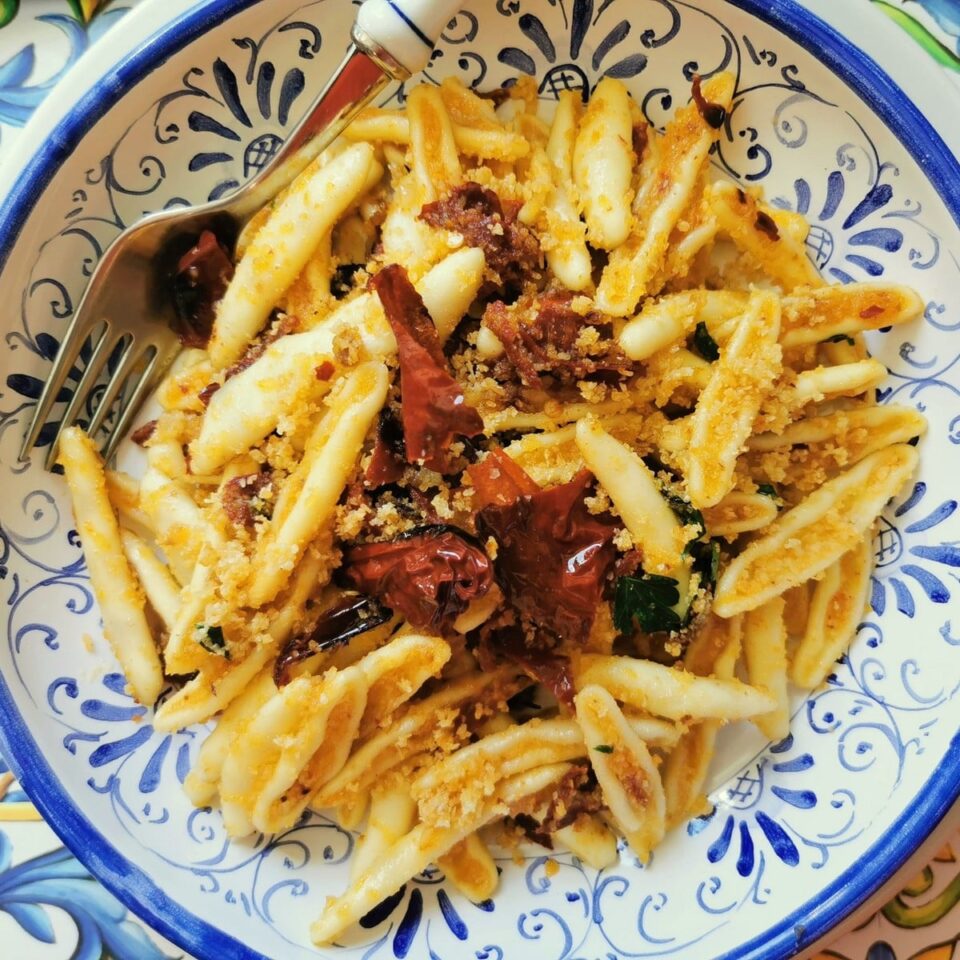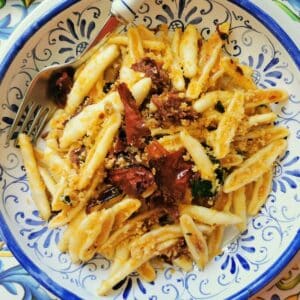This unique pasta recipe from Basilicata uses Senise peppers, known locally as “peperoni cruschi”. They add a wonderful sweet, slightly nutty, smoky flavor to this recipe and some believe they are the most delicious peppers in the world.
Peppers are so tasty that this authentic Senise pepper pasta recipe uses only 6 ingredients. Plus, it can be made in just 30 minutes!
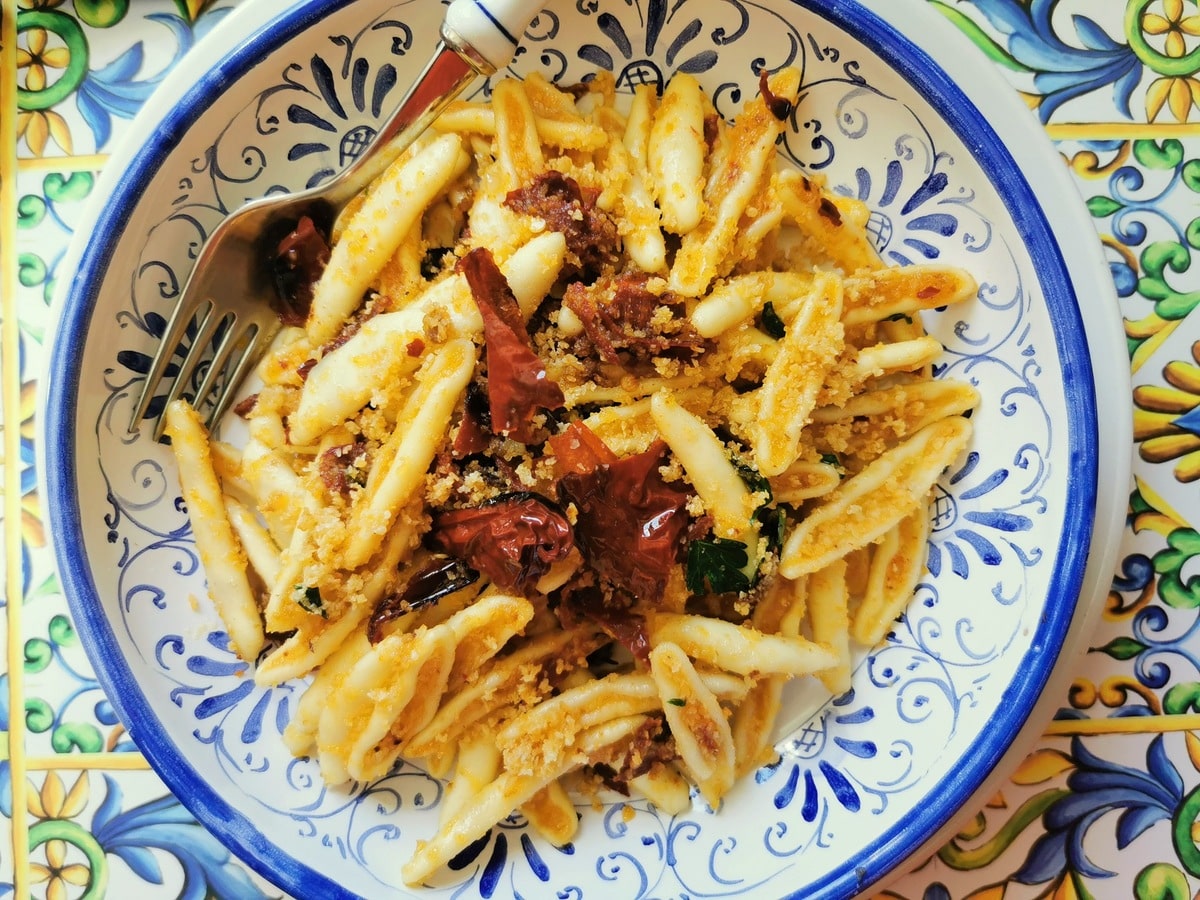
History
Senise peppers are produced in the Lucanian provinces of Potenza and Matera. They are harvested by hand from August to September and are eaten fresh, dried or ground into powder as a spice.
To dry them, farmers string the peppers on long strings called ‘serte’. The serte are obtained by threading the peppers one by one from the stem with a needle and arranging them in a spiral around the string until they reach a length of approximately 150-200 cm.
After drying, which takes place in the open air and in the shade, the ‘ropes’ can be bagged and sold as is or ground to obtain powder. The pulp of these peppers is very thin and has a low moisture content, so they dry out quite quickly. Since pepper powder has the same color as saffron, it is also called “safarano” in the local dialect.
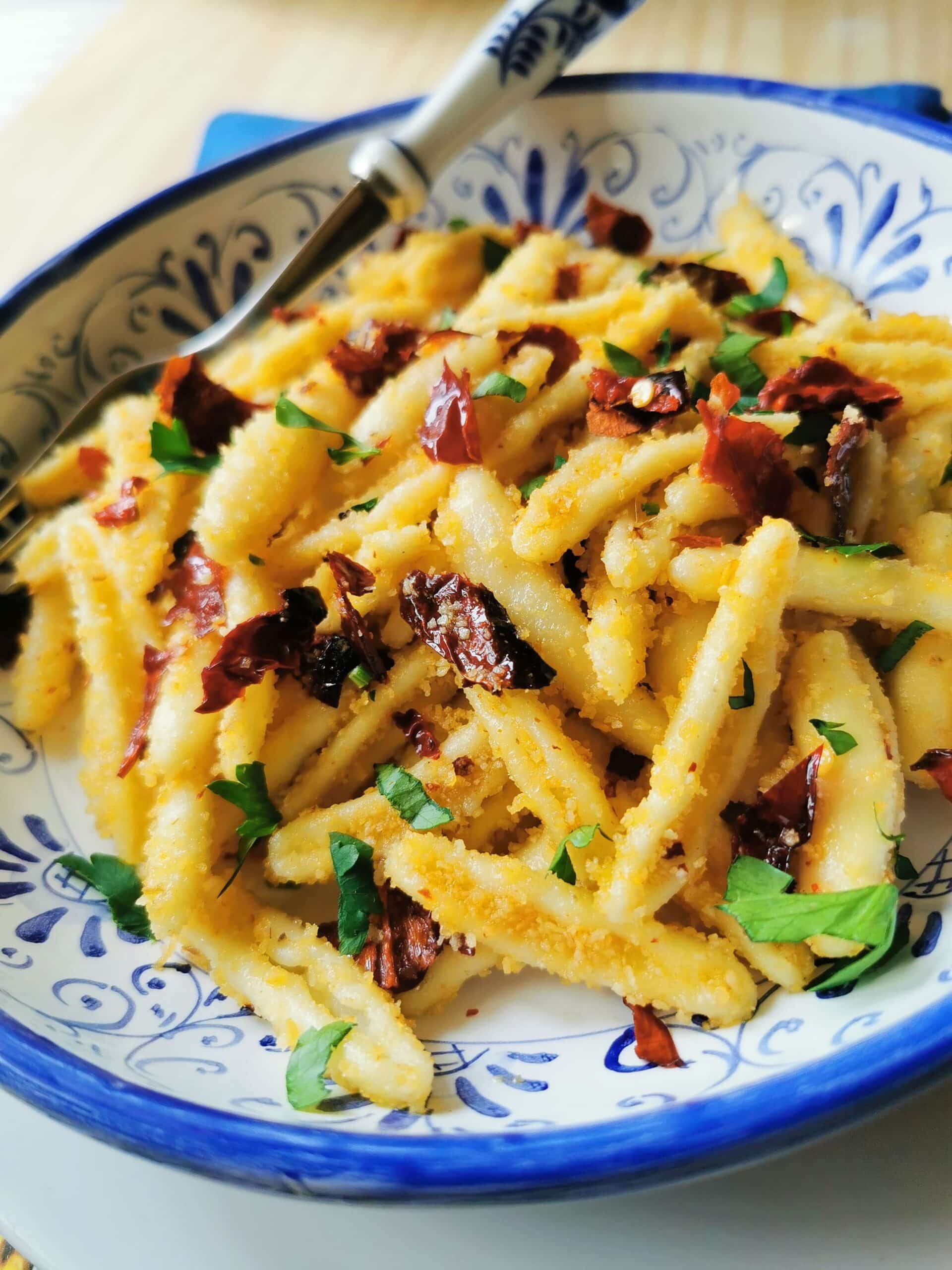

Dried Senise peppers are a highly appreciated ingredient in Lucanian cuisine. They are often fried quickly (as they burn easily) and then placed on kitchen paper to remove excess oil. Once cooled they become very crunchy and are then used in numerous pasta recipes with bran peppers.
They also crumble on sautéed potatoes or fried eggs; consumed as a side dish with cod, roast meat or sausages or consumed as a snack with drinks. They have a sweet, smoky flavor that is sometimes a little spicy and can be much tastier!
ingredients
Cavatelli Pasta: It is a typical pasta from Southern Italy originating from Molise and Puglia but is also widespread in Abruzzo, Campania, Basilicata, Calabria and Sicily. It resembles malloreddus and has an excellent ability to capture the bread crumbs and peppers in this recipe. If cavatelli are not available you can prepare them at home or use malloreddus or orecchiette.
Senise Peppers: These dried peppers provide a smoky sweetness that defines this classic Lucanian pasta recipe.
Bread crumbs: Toasted in olive oil, they contribute a satisfying crunch, balancing the softness of the pasta in the classic Southern Italian style. You can use ready-made or homemade breadcrumbs.
Garlic: It infuses the oil with a subtle, aromatic flavor. It’s best to use fresh garlic rather than pre-minced or powdered garlic.
Anchovy Fillet: It provides a deep umami base note, enriching the overall flavor profile without overpowering it.
Extra virgin olive oil: Choose a high-quality extra virgin olive oil for frying the peppers and toasting the breadcrumbs, as it contributes significantly to the flavor of the dish.
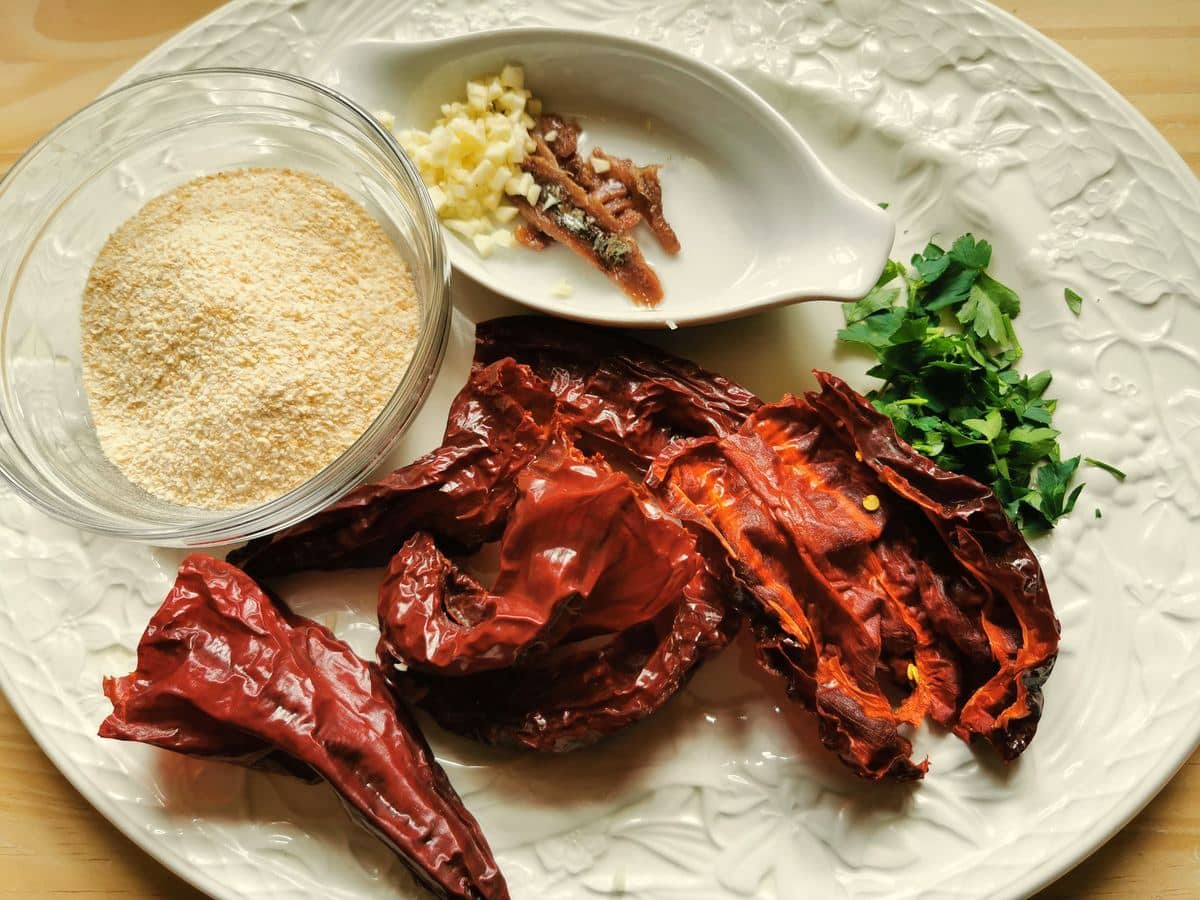

Expert advice
Preparation of Senise peppers: Start by carefully removing the stem and seed-filled center of the dried Senise peppers, leaving only the bright red pulp. The seeds and white membranes inside these peppers can introduce a bitter note that could overwhelm the delicate balance of flavors you’re aiming for in this recipe.
Once the stem and seeds have been removed, cut the peppers and gently flatten them to increase their surface area. This will allow you to fry the Senise peppers more evenly.
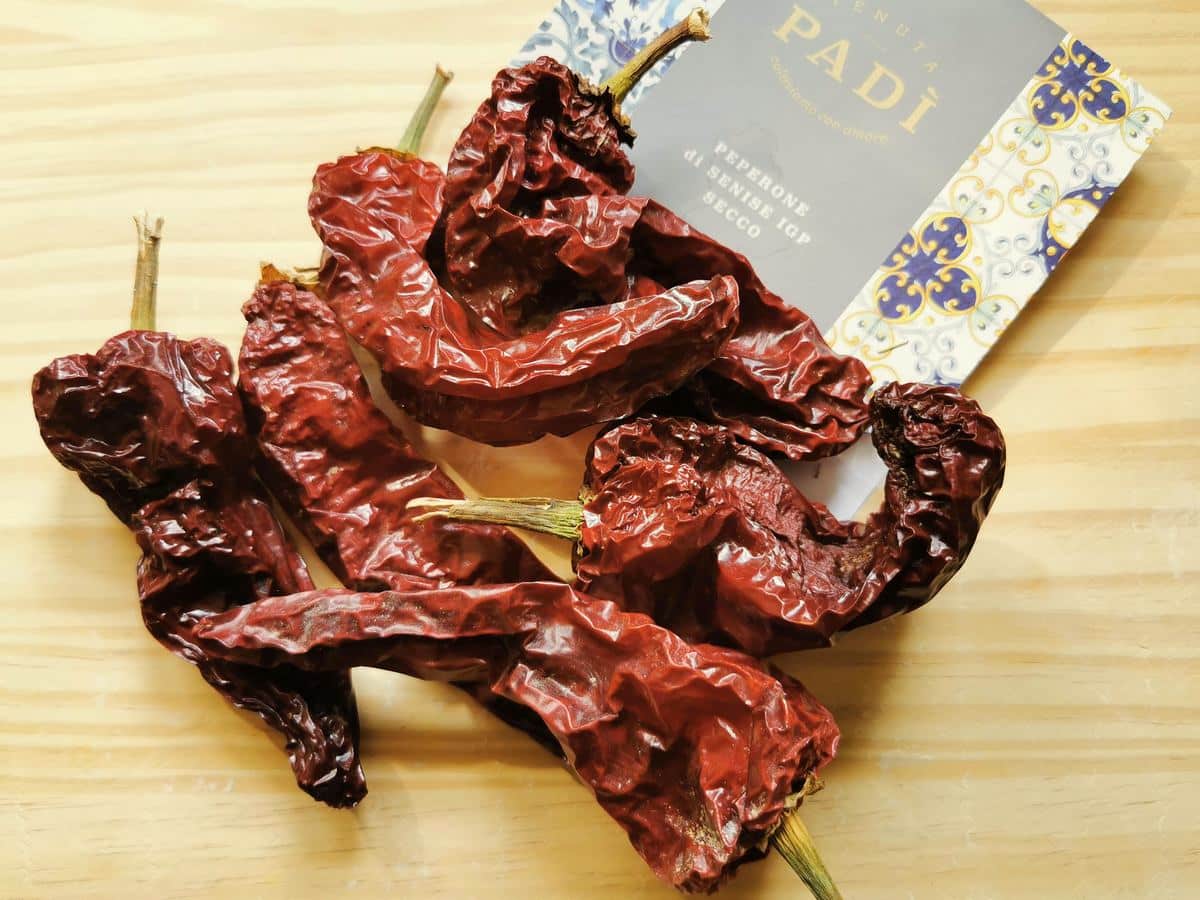

Toast the breadcrumbs: To ensure that the breadcrumbs don’t burn and turn brown, be sure to stir them regularly. This will help them toast evenly and absorb the aromatic oil.
Perfect pasta cooking: Start by bringing a large pot of water to a boil before adding salt. Allow the water to return to a boil to ensure the salt is completely dissolved. Add the pasta, stirring immediately to prevent the pieces from sticking to the bottom of the pan.
Continue stirring occasionally during the cooking process for even cooking. Then, start tasting the pasta about a minute before the recommended cooking time on the package to get it to the perfect al dente consistency.
Step by step instructions
1) Bring a pot of water to the boil for the pasta. When it starts to boil, add salt and bring to the boil again.
2) Heat a generous amount of olive oil in a large skillet until hot. Quickly fry the peppers on both sides until they are lightly golden, being careful not to burn them. Drain them and place them on absorbent paper to dry.
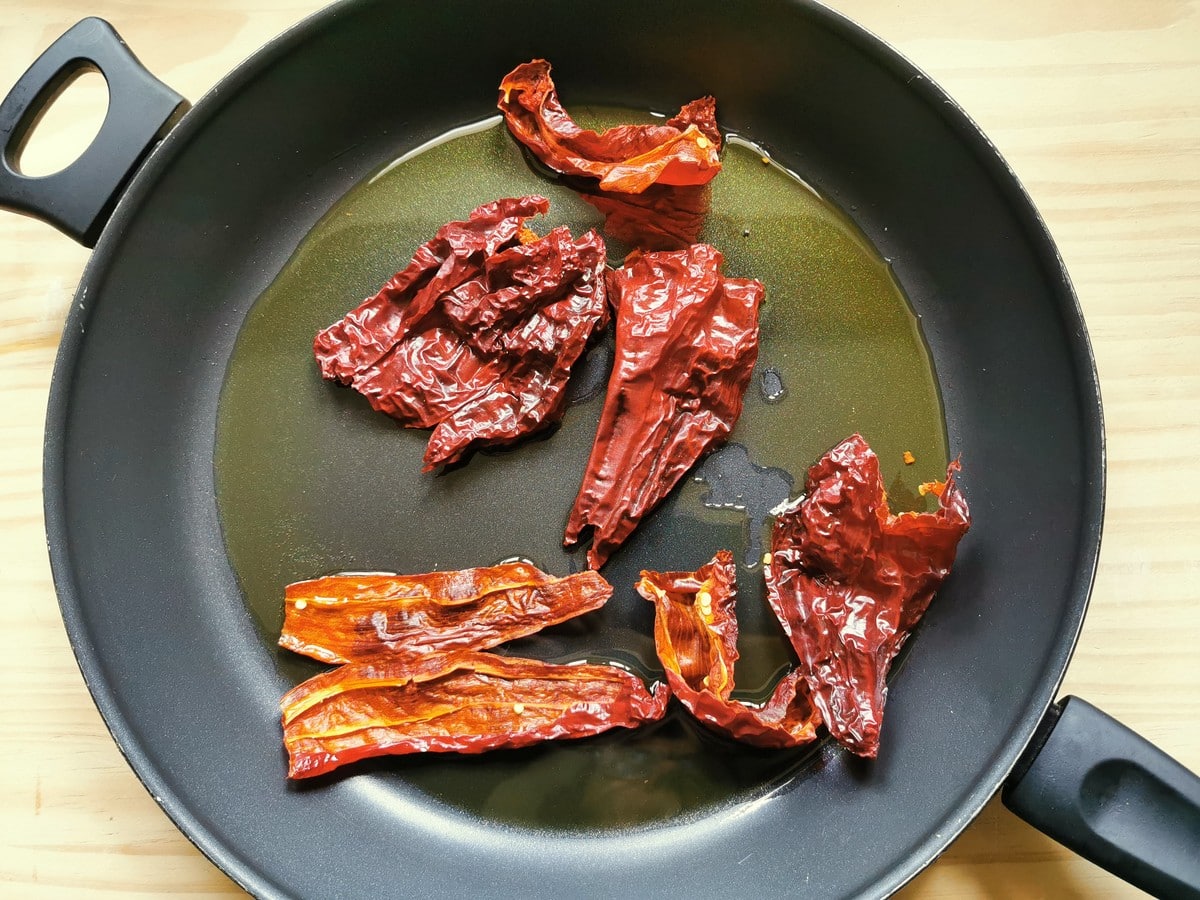

3) Fry the garlic, chilli flakes (if used) and anchovy fillets in the same oil. Break up the anchovy with a fork or wooden spoon to dissolve it in the oil.
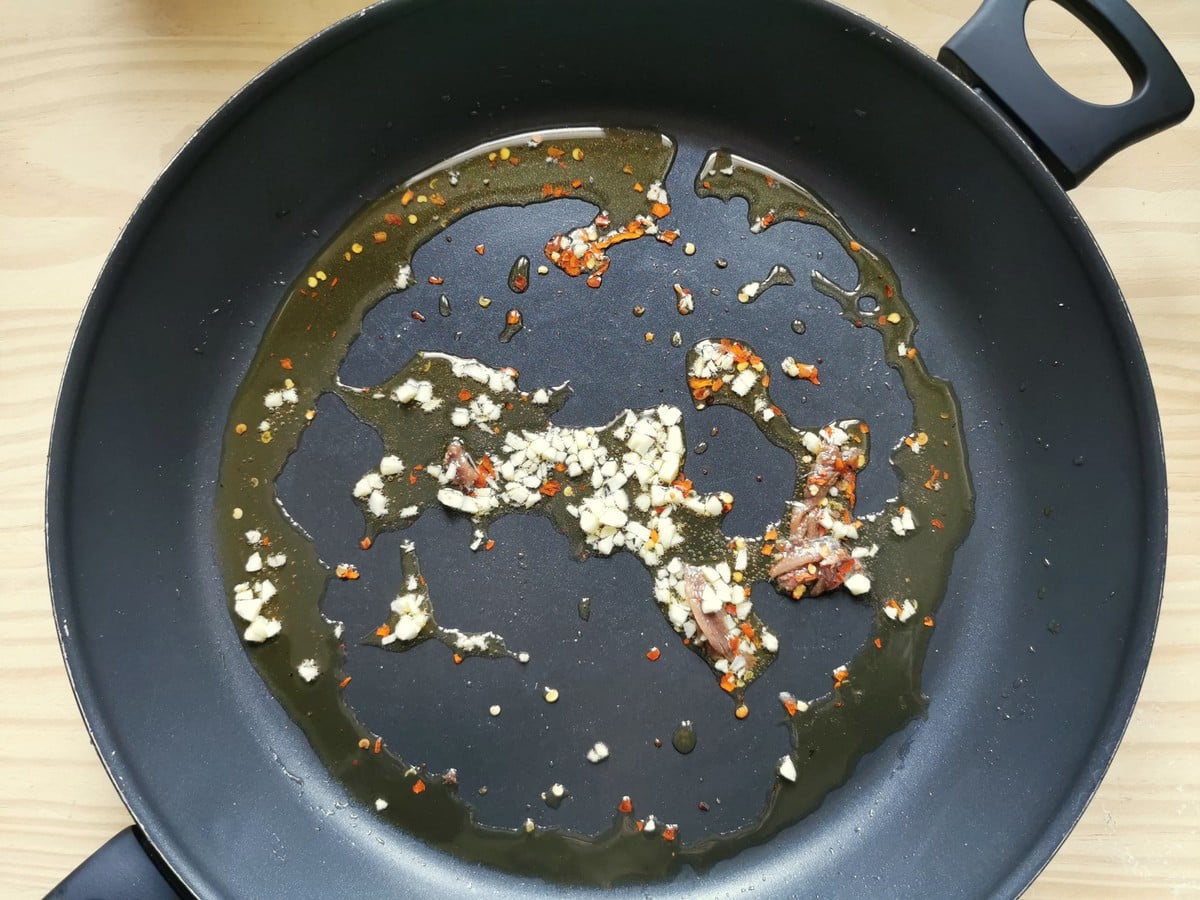

4) Add the breadcrumbs to the pan, stirring well until golden and aromatic. Turn off the fire.
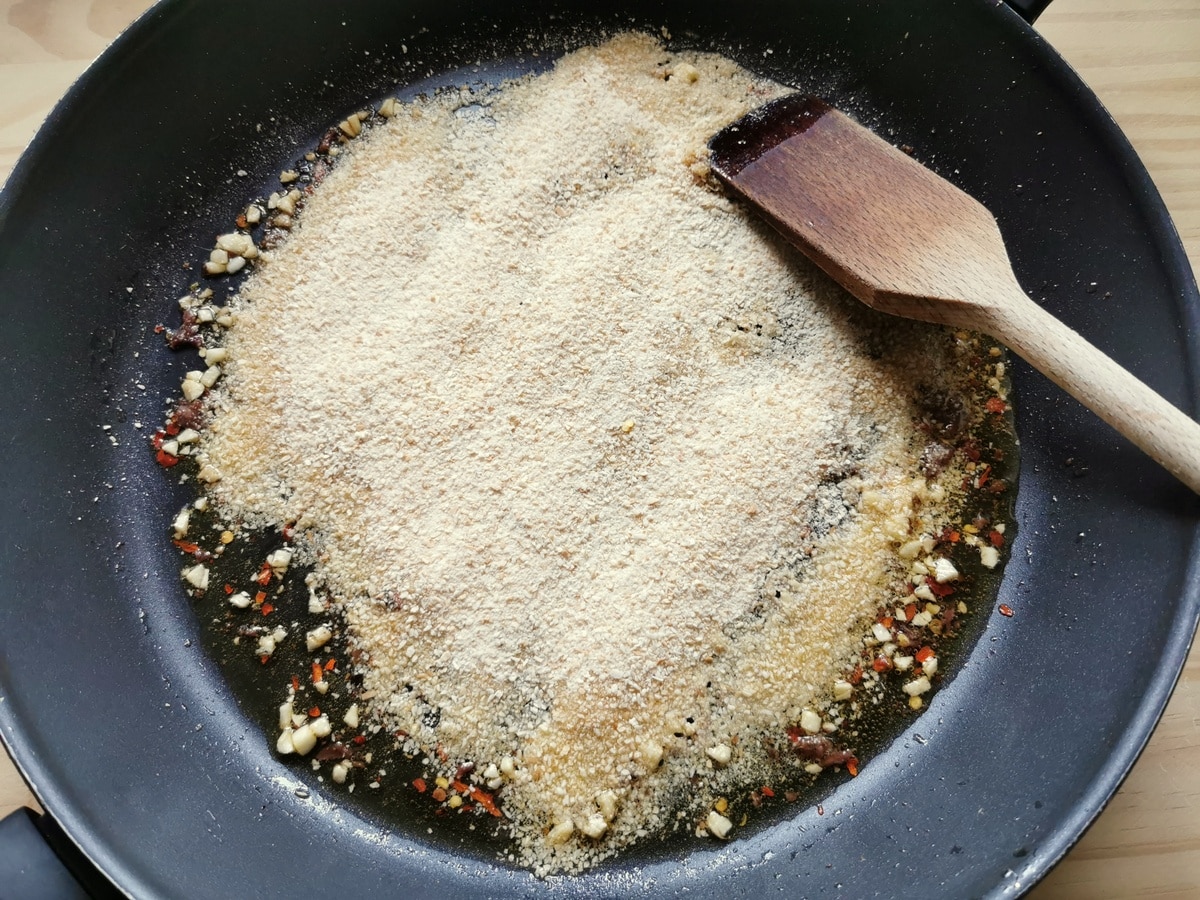

5) In the meantime, cook the cavatelli al dente according to the instructions on the package. Drain and toss the pasta in the pan with the breadcrumbs.
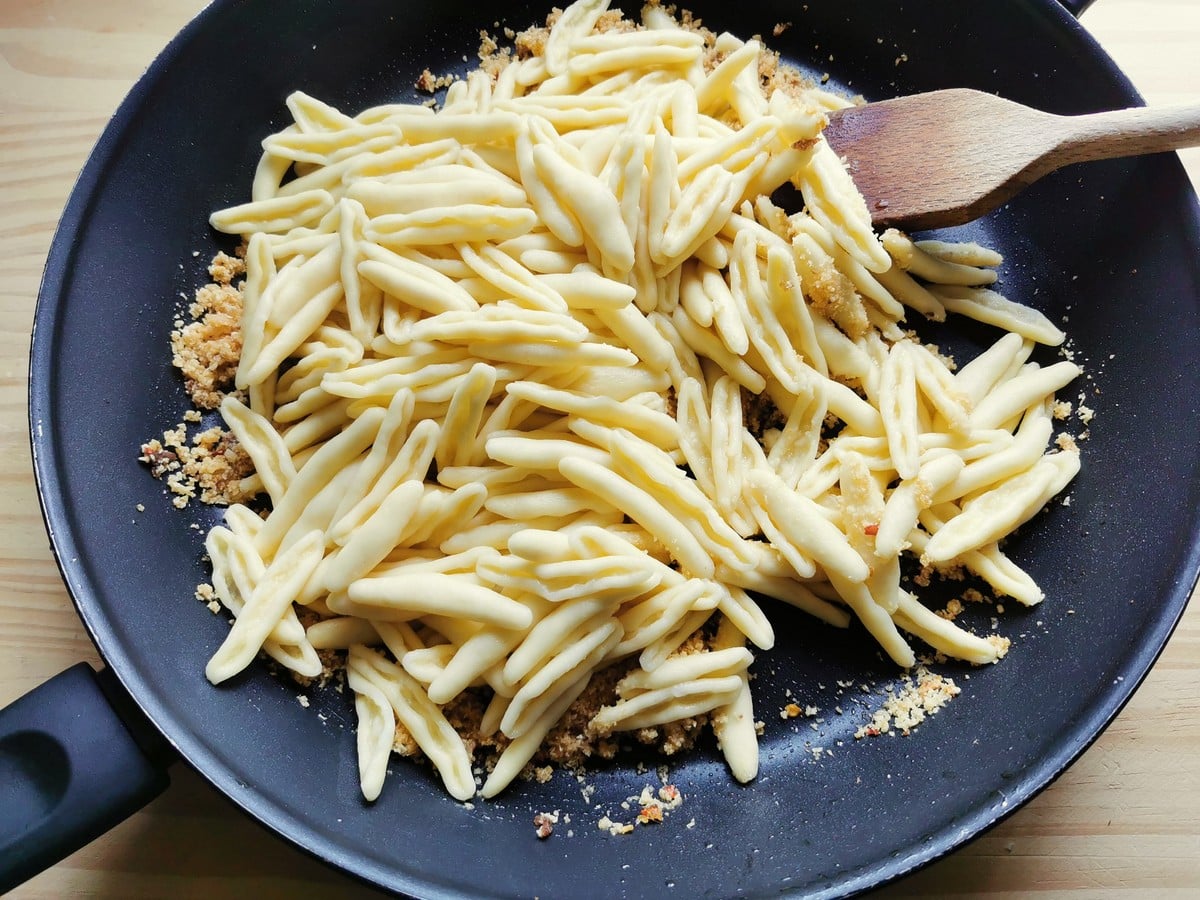

6) Crumble most of the Senise peppers prepared onto the pasta, mixing well. Cook together for another 2-3 minutes, adding a little more olive oil if the mixture seems dry.
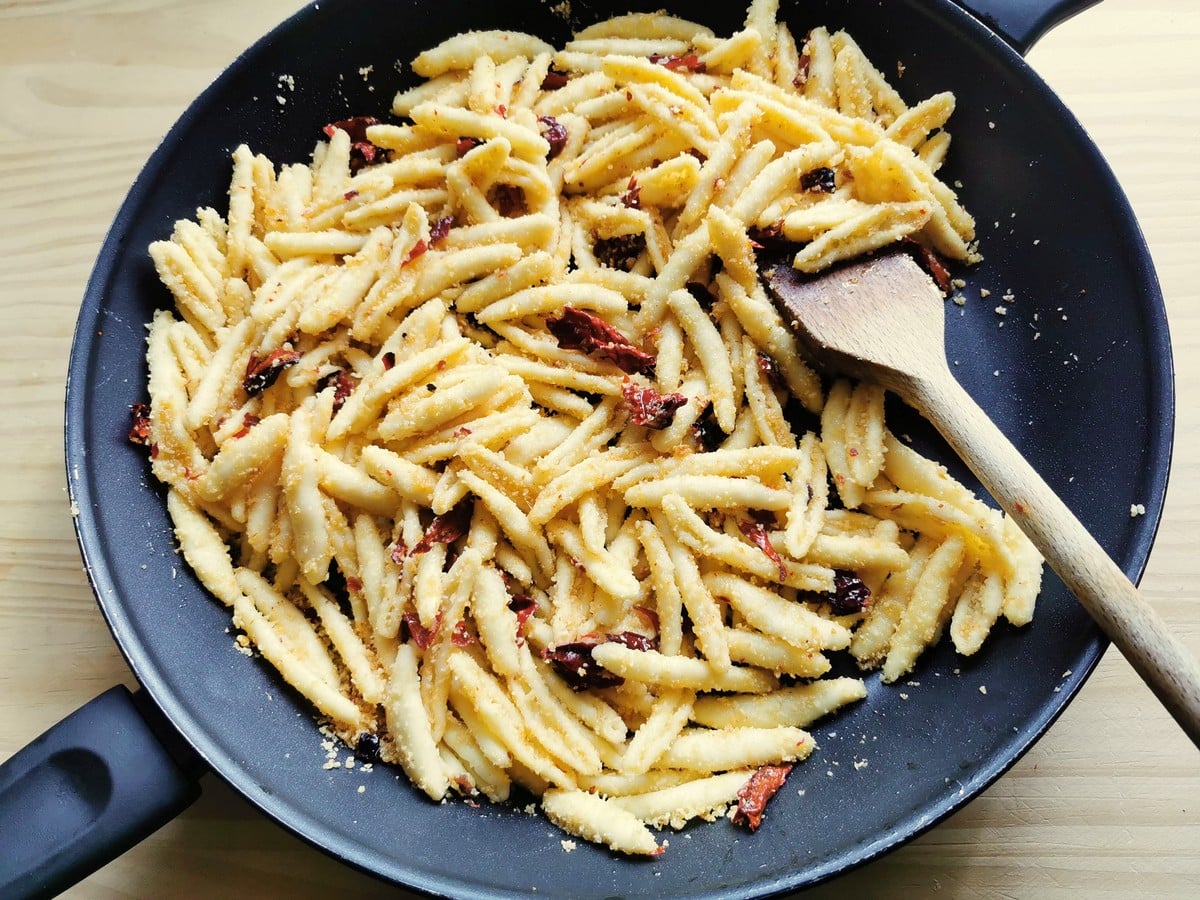

7) Serve garnished with the remaining Senise peppers.
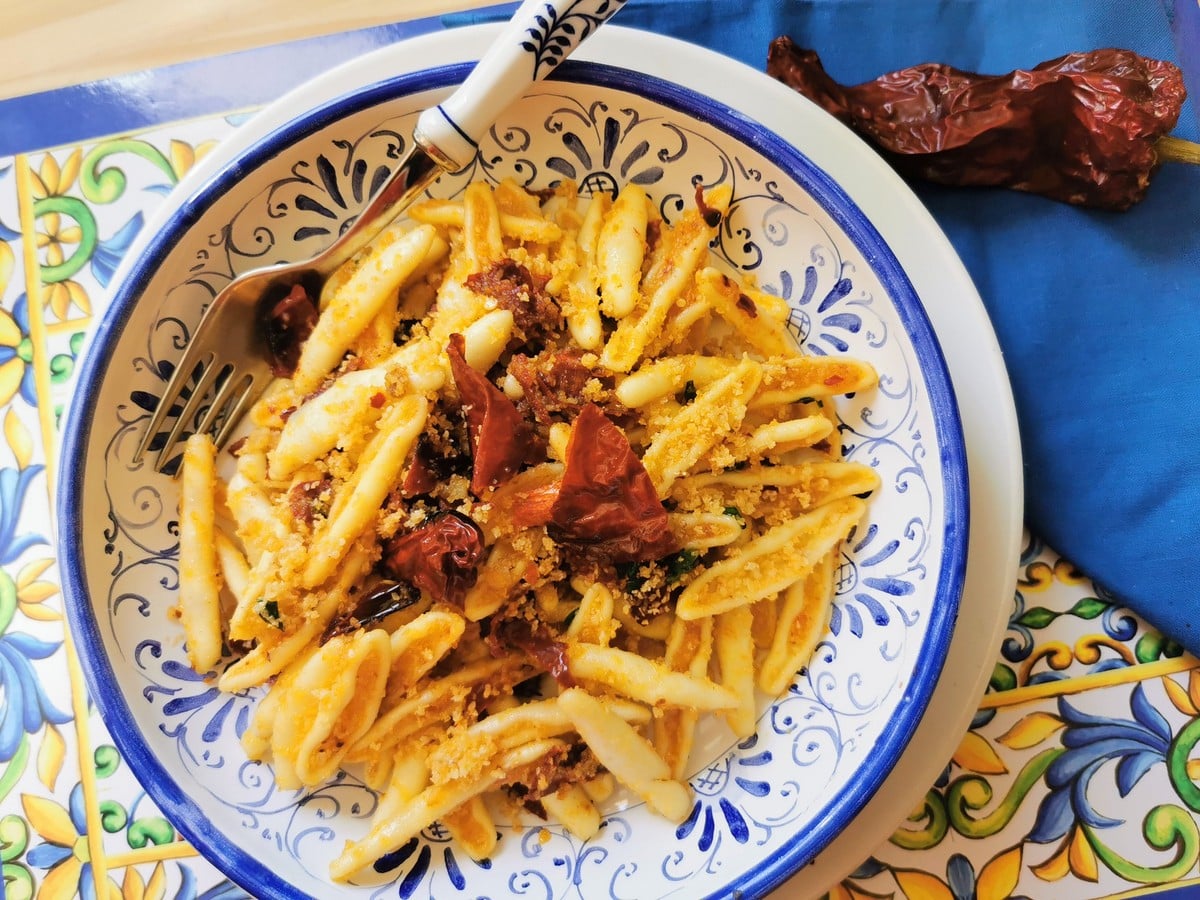

Storage and leftovers
Allow any leftovers to cool to room temperature, then transfer to an airtight container. Then add the leftovers to the refrigerator and they should stay fresh for up to 3 days.
To reheat, place the pasta in a microwave-safe container and cover. Heat on medium heat for about 2 minutes, then stir. Then continue to heat in 30-60 second intervals, stirring occasionally, until the pasta is hot.
I also cooked the leftovers of this cavatelli recipe with a few slices of mozzarella and a sprinkling of grated pecorino. It was really very nice!
Frequent questions
Senise’s dried peppers are called cruschi in the local dialect. They are a quintessential taste of Basilicata, but, unfortunately, difficult to find in shops elsewhere. However, you can buy them online both in powder and whole dried form, so I got the ones I used in this recipe for cavatelli with bran peppers! Seeds are also easily available online, so another idea would be to grow your own!
Senise peppers are a variety of peppers; although the shape may resemble that of a hot chili pepper, they are not spicy. When fresh they have a sweet flavor and once dried they begin to develop a more concrete, smoky and slightly nutty flavour.
Other recipes you might like:
If you make the recipe for cavatelli with Senise peppers, I would be happy to know how they turned out and if you liked them. Please leave a comment here on the blog or at The Pasta Project Facebook page. Looking forward to hearing from you.
Enjoy your meal!
Pin for later:
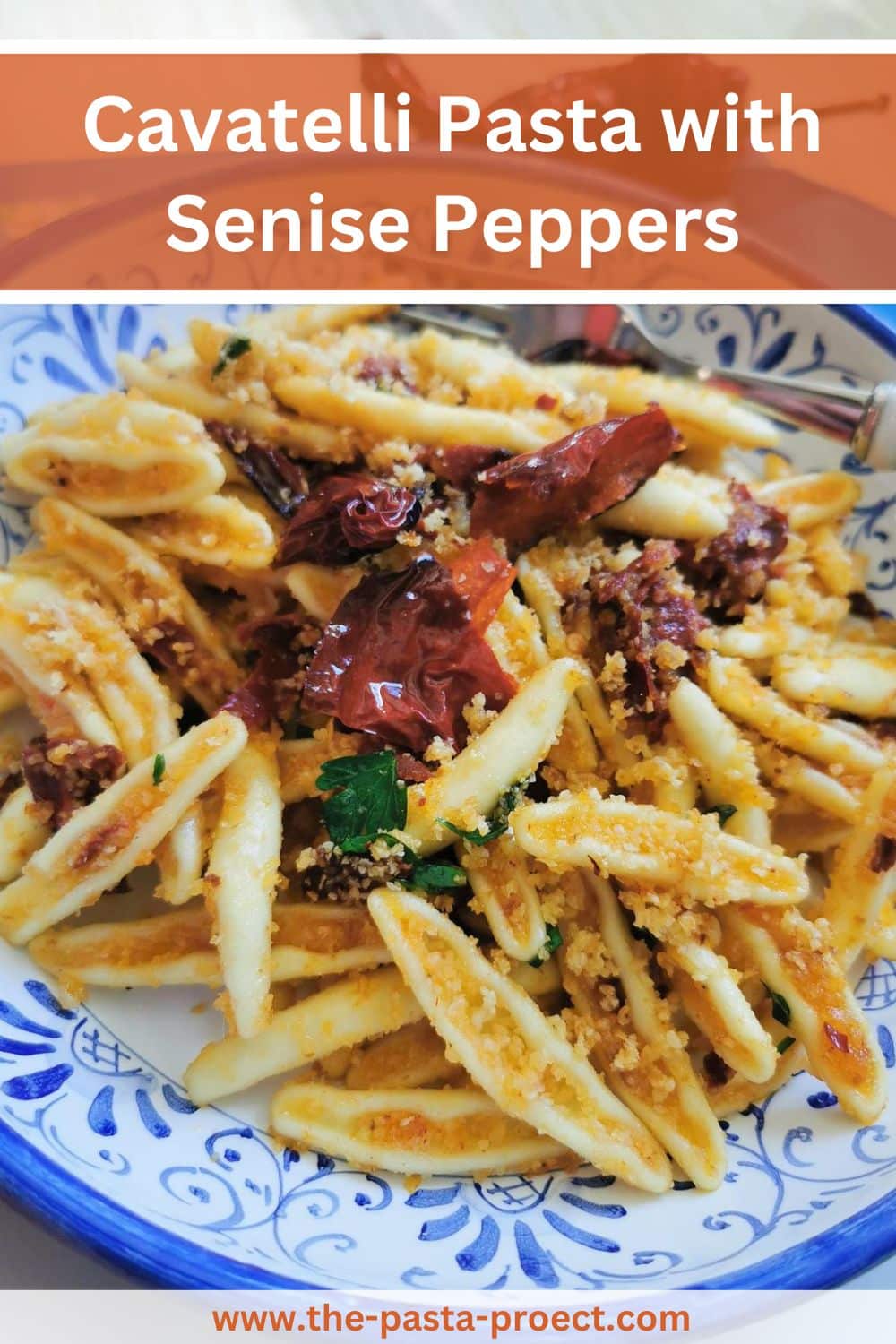

If you are interested in learning how to make homemade pasta and different types of gnocchi, check out my shop page for some great online video courses taught by my friends in Rome! There’s nothing better than learning how to make pasta from Italians! More While you’re at it, why not order a copy of one of my pasta recipe books or check out some recommended pasta making tools?

